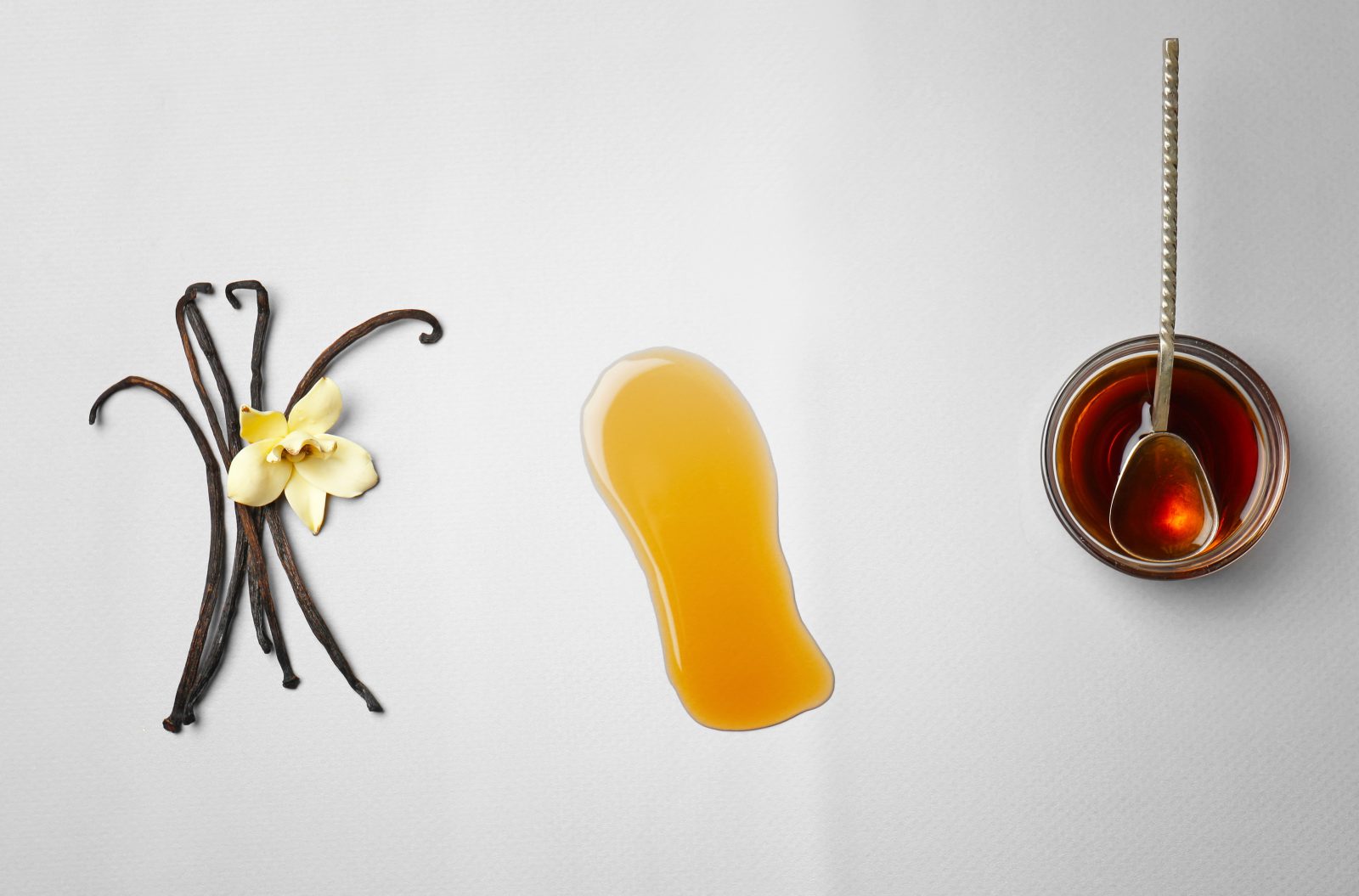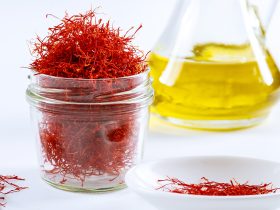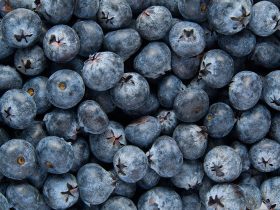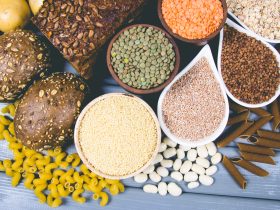The mention of “vanilla extract” conjures up images of delectable desserts, but did you know that beyond its delicious flavor, this common ingredient offers plenty of health benefits?
While vanilla extract has long been celebrated for its soothing aroma and rich taste, it also contains a surprising array of health-promoting properties, making it a star ingredient in both kitchens and medicine cabinets.
Unlike its cousin, vanilla oil, which is extracted using carrier oil, vanilla extract is produced by infusing vanilla beans in alcohol, resulting in a potent, versatile ingredient that can elevate everything from sweet treats to savory dishes.
Dating back to the 1400s, when it was cherished as a local treasure in Mexico, vanilla has maintained its special place in the hearts and kitchens of people worldwide.
Let’s talk about the myriad ways vanilla extract can boost your health, from its antioxidant and anti-inflammatory properties to its potential as a mood enhancer and mental health booster. So whether you’re baking up a storm or looking for a natural way to support your well-being, it’s time to take a closer look at the many benefits of vanilla extract.
What is Vanilla Extract?
Vanilla extract, derived from vanilla beans soaked in alcohol and water, has a rich history that dates back to the Aztecs in the 15th century. Today, it is a popular culinary ingredient known for its indulgent flavor.
Traditionally, vanilla extract was made using only alcohol and vanilla beans, but modern commercial extracts may also include additional ingredients, such as sugar or glycerin, to enhance flavor. However, for those looking to reap the health benefits of vanilla, it is important to choose an extract made from authentic vanilla beans and alcohol, rather than synthetic vanillin or artificial flavors.
One of the key health benefits of vanilla extract comes from its antioxidant properties. Vanilla contains compounds such as vanillin and vanillic acid that act as antioxidants, helping to protect the body from oxidative stress and inflammation. This may be particularly beneficial for individuals with conditions such as arthritis or heart disease, which are associated with chronic inflammation.
In addition to its antioxidant properties, vanilla extract may also have a positive impact on mental health. The aroma of vanilla has been shown to have a calming effect on the brain, reducing stress and anxiety levels. Some studies have even suggested that vanilla extract may have antidepressant effects, although more research is needed to confirm this.
Vanilla extract can also be used topically to soothe skin irritations and reduce inflammation. When applied to the skin, the antioxidants in vanilla can help to repair damage caused by free radicals, while its antibacterial properties can help to fight off infections.
Overall, vanilla extract is a versatile and delicious ingredient that can be enjoyed in a variety of ways, from baking to aromatherapy. Whether you choose to use it in your favorite recipes or as a natural remedy for minor ailments, vanilla extract is sure to add a touch of sweetness and comfort to your life.
Nutritional Values of Vanilla Extract
Vanilla extract is made from the beans of the vanilla plant, most commonly V. planifolia from Mexico. It’s known for its delicious flavor and many health benefits.
Here’s a breakdown of the nutrition facts in a one-tablespoon serving of commercially produced vanilla extract:
- Calories: 37.4
- Protein: 0.01g
- Total Carbohydrates: 1.6g
- Total Fat: 0.01g
- Sugar: 1.6g
- Sodium: 1.2mg (0.1% Daily Value)
- Potassium: 19.2mg (0.4% Daily Value)
It’s important to note that these values may vary slightly in homemade vanilla extract and that commercially produced vanilla extract must contain at least 35% alcohol.
The Surprising Health Benefits of Vanilla Extract
- Reduces Inflammation
It is not only the inflammation of cold sores that vanilla can alleviate; its effects can also extend to reducing overall body inflammation. Inflammation is often considered the root cause of many diseases.
Medical science is increasingly recognizing the profound impact of chronic inflammation, and this field has become a prominent area of research in healthcare.
Inflammation can be reduced not only by eliminating inflammatory foods from your diet (examples include high-sugar foods, pasteurized dairy, and conventional meat) but also by incorporating elements into your diet that actively counteract existing inflammation.
Research conducted on rats revealed the anti-inflammatory properties of vanillin, along with its antioxidant activity. Notably, vanillin was found to be particularly effective in preventing and mitigating liver injury.
Further studies have demonstrated that vanillin is beneficial for human health in multiple ways, such as having antioxidant activity, as well as anti-inflammatory, anti-mutagenic, anti-metastatic, and anti-depressant properties.
- It is a Very Potent Antioxidant
Vanillin is a potent antioxidant that is crucial for maintaining health. It combats the detrimental effects of free radicals that infiltrate our systems via environmental pollutants, solar radiation, and other sources, preventing them from causing irreversible harm.
This phenomenon, termed “oxidative stress,” underpins various chronic illnesses and contributes to the genesis of malignancies.
Remarkably, vanillin’s antioxidant potential pales in comparison to that of vanilla extract, which has lately sparked interest as a valuable commodity in both food preservation and nutritional supplements.
- A Natural Antidepressant for Mental Well-being
Vanilla’s potential to mitigate anxiety and depression in certain patients has been well documented. This therapeutic effect is believed to be due in part to its anti-inflammatory properties.
It is not just the risk of disease that inflammation influences; it also appears to contribute to various forms of mental instability.
In situations where the brain is stressed, such as due to injury, chronic mental/emotional stress, infection, or nutritional deficiencies, it prompts the release of what are known as “pro-inflammatory cytokines.” These are molecules released by the immune system in response to illness or other factors, and they come in various forms, including pro-inflammatory types.
Ordinary inflammation is a natural bodily process, as the well-crafted human system attempts to rid itself of infection or other harm. However, an excessive release of any pro-inflammatory cytokine triggers both physical and psychological reactions, known as “sickness behavior.”
Research into depression has shown a significantly higher presence of the pro-inflammatory cytokine TNF-alpha in patients diagnosed with depression compared to those who were not.
Therefore, it is not surprising that vanillin has demonstrated antidepressant properties, which could be linked to its inflammation-reducing effects (although this was not explicitly mentioned in the study). Notably, the reactions observed in subjects were comparable to those of fluoxetine, a commonly prescribed SSRI drug for depression. Unlike fluoxetine, which has numerous “common” side effects, including unusual dreams, pain, vomiting, diarrhea, flu-like symptoms, and erectile dysfunction, among others, vanillin did not exhibit any side effects in animal studies.
Additionally, researchers have observed that “vanillin prevents neuroinflammation and neurodegeneration in vitro and in vivo systems,” further supporting its potential for promoting brain health and mental well-being.
- A Natural Option for Lowering Cholesterol
In initial studies conducted on rats, vanillin has shown promise in reducing high cholesterol levels. For individuals seeking natural and fast ways to lower cholesterol, incorporating vanilla extract into your meals could be a beneficial option.
Cholesterol management is a significant concern for many, as high cholesterol levels are associated with an increased risk of cardiovascular disease. The potential cholesterol-lowering effects of vanilla extract can be attributed to its anti-inflammatory properties, which may help to regulate cholesterol levels in the body.
Although more research is needed to confirm the efficacy of vanilla extract in lowering cholesterol in humans, its positive impact on cholesterol levels in rats suggests that it may have similar benefits for humans as well.
It’s important to note that while vanilla extract may be a helpful addition to a cholesterol-lowering regimen, it should not be considered a standalone treatment. A holistic approach, including a balanced diet, regular exercise, and medical advice, is essential for managing cholesterol levels effectively.
- Strong Antibacterial Properties
One of the fascinating aspects of vanilla products is their antibacterial properties. This feature has contributed to their inclusion in many natural treatment regimens for ailments such as cold sores.
When using vanilla products for cold sores, a simple method involves soaking a cotton ball with vanilla extract. This saturated cotton ball can then be applied directly to the cold sore approximately four times each day.
In a short period after the first application, you may notice a significant reduction in the inflammation of the cold sore. Continued application over several days can lead to the disappearance of the sore altogether, making vanilla products a viable and natural option for cold sore treatment.
- A Home Remedy for Fever
If you’re searching for ways to lower a fever naturally, consider the age-old folk remedy of using vanilla. While scientific studies specifically demonstrating its efficacy in reducing fever are sparse, the longstanding tradition of its use suggests it may have some merit.
Typically, a low-grade fever indicates that your body is engaged in fighting off an infection. Vanilla’s potential to alleviate a fever aligns with its known anti-inflammatory properties, which may help to moderate the body’s immune response to infection.
Though scientific evidence is limited, the historical and cultural use of vanilla as a fever-reducing remedy supports its potential in this regard. As with all home remedies, it’s essential to consult with a healthcare professional for personalized advice and treatment options.
How to Make Your Own Homemade Vanilla Extract
Creating your own vanilla extract is a straightforward process that requires only a few ingredients and a bit of patience. Here’s how you can make your very own vanilla extract:
Ingredients:
- An 8-ounce glass bottle or jar
- 6–8 vanilla beans
- Alcohol with about 35 percent alcohol content (approximately 70 proof). Options include vodka, bourbon, or brandy.
Step-by-step Guide:
- Begin by cutting each vanilla bean along its length, ensuring the entire pod is sliced. Depending on the size of your bottle, you can also chop the pods into smaller segments to facilitate their insertion into the container.
- Pour exactly one cup of your chosen alcohol into the bottle, ensuring that the beans are fully submerged in the liquid.
- Now, it’s time to wait! High-quality vanilla extract typically requires around eight weeks to fully mature. Store the bottle in an area with room temperature and no direct sunlight exposure. To enhance the infusion process, gently shake the bottle once a week.
- Once your homemade extract is ready, you have the option to either remove the vanilla beans or leave them in. If left in and kept submerged, the flavor of the extract will continue to mature, similar to the aging process of wine.
Crafting your own vanilla extract not only allows you to control the quality of the ingredients but also lets you experience the joy of creating a product from scratch. Enjoy the process and the delightful vanilla extract you’ll have at the end!
Risks and Side Effects of Vanilla Consumption
Vanilla is generally regarded as safe for consumption, with no common side effects or known medicinal interactions.
However, in rare instances, individuals may experience mild allergic reactions, such as skin irritation, headaches, or sleep problems, after consuming vanilla.
If you encounter any of these symptoms after ingesting vanilla, it’s advisable to consult your physician and discontinue its use. While the risk of experiencing adverse effects from vanilla is low, it’s always important to be aware of potential allergic reactions and to seek medical advice if necessary.
Final Thoughts on Vanilla Extract: A Versatile and Beneficial Ingredient
It’s important to note the distinctions between vanilla extract and vanilla oil. Though both are produced using similar methods, vanilla extract is created by percolating vanilla beans in alcohol, while vanilla oil is derived from soaking the beans in a carrier oil.
In terms of caloric content, vanilla extract offers a relatively low number of calories given its rich flavor profile. However, it’s worth mentioning that many commercially available “vanilla” products are not sourced from genuine vanilla beans but are synthesized from a sawdust byproduct called lignin.
When it comes to flavor and quality, Madagascar vanilla beans are widely considered to be the most flavor-packed variety.
Creating your own homemade vanilla extract is a straightforward process that doesn’t require much effort but does necessitate patience, as it takes about eight weeks to fully mature.
The antioxidant, antibacterial, and anti-inflammatory properties of vanilla extract can have a significant impact on various body systems, contributing to better heart and improved mental health, among other benefits.
Vanilla production originated in Mexico during the 15th century and eventually spread to Europe and beyond over subsequent centuries. Throughout its history, vanilla extract has maintained a strong safety profile, with no known side effects.
In conclusion, vanilla extract is a versatile and beneficial ingredient that can be safely enjoyed in a variety of recipes, offering not only its delightful flavor but also potential health benefits.
















Find Us on Socials